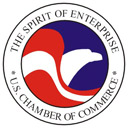

The U.S. National Labor Relations Board has adopted a rule change that would streamline union-forming elections and delay the appeals process. In response, the U.S. Chamber of Commerce filed a lawsuit Tuesday in U.S. District Court for the District of Columbia to halt the rule.
The rule, adopted from a resolution passed by the board Nov. 30, would grant more power to hearing officers who preside over labor union pre-election hearings and delay the appeals process until after the election. Supporters of the new rule say it will reduce unnecessary litigation and delays in the election process.
Chairman Mark Pearce and board member Craig Becker voted in favor of the rule change. Brian Hayes, the board?s sole Republican, had yet to cast his vote as of Wednesday. The rule will go into effect April 30, 2012. Hayes has until that date to submit a dissenting statement.
When employers and their employees disagree about who is eligible to vote, the matter is referred to a regional office for a hearing. The NLRB contends that about 10% of elections go through the hearing process.
Under the new rule, debate during the hearing will be limited to whether or not an election should occur. The officer administering the hearing will also have the authority to limit testimony.
?This rule is about giving all employees who have petitioned for an election the right to vote in a timely manner and without the impediment of needless litigation,? Pearce said in a written statement.
The complaint filed Tuesday by the Chamber also names the Coalition for a Democratic Workplace as a plaintiff. On Wednesday, the Chamber amended its complaint.
In the amended complaint, attorneys with Morgan, Lewis & Bockius wrote on behalf of the Chamber, the firm's client, that the rule ?curtails an employer?s right to communicate with its employees by substantially shortening the election period? and that ?[u]nless enjoined, the [r]ule will cause immediate, irreparable damage to Plaintiffs and their members.?
Plaintiffs are asking the court to deem the rule ?arbitrary, capricious, an abuse of power and/or otherwise not in accordance with law.?
Jonathan Fritts, a Morgan Lewis partner working on the case, said the new rule limits an employer?s right to determine prior to the election who is eligible to vote. Fritts said that disputes often arise as to whether supervisors are eligible to vote, as they may be considered part of management and thus ineligible.
?What the rule does is afford the hearing officer the ability to limit evidence and litigation of issues concerning who is eligible to vote in the election,? Fritts said. Delaying the appeals process until after the election can create confusion about who is eligible to vote and who can speak on behalf of the employer, he added.
In a written statement, AFL-CIO president Richard Trumka said the board took a ?modest but important step? with the passage of the rule, but said that ?many more improvements are needed to protect workers? rights.?
?We hope the Board will quickly move to adopt the rest of its proposed reforms to modernize and streamline the election process,? Trumka said, referring to additional rules proposed by the board in June but later dropped from the Nov. 30 resolution.
?
Subscribe to Legal Times
Source: http://www.law.com/jsp/cc/PubArticleCC.jsp?id=1202536475980&rss=cc
smokey robinson smokey robinson del rio del rio das racist das racist ginger white
No comments:
Post a Comment
Note: Only a member of this blog may post a comment.